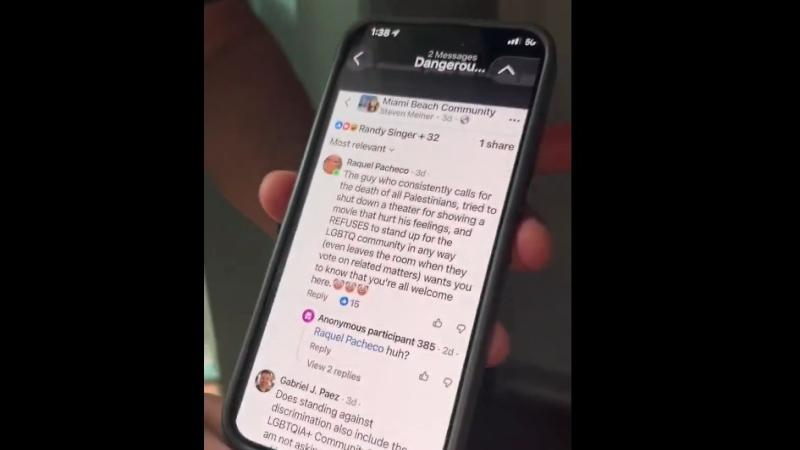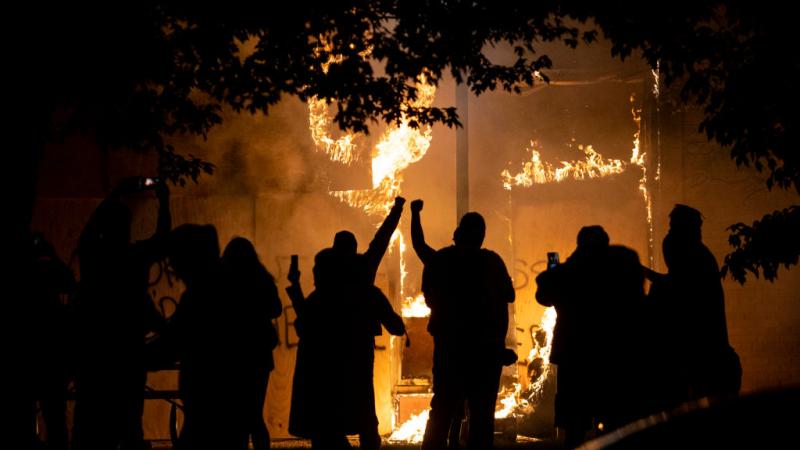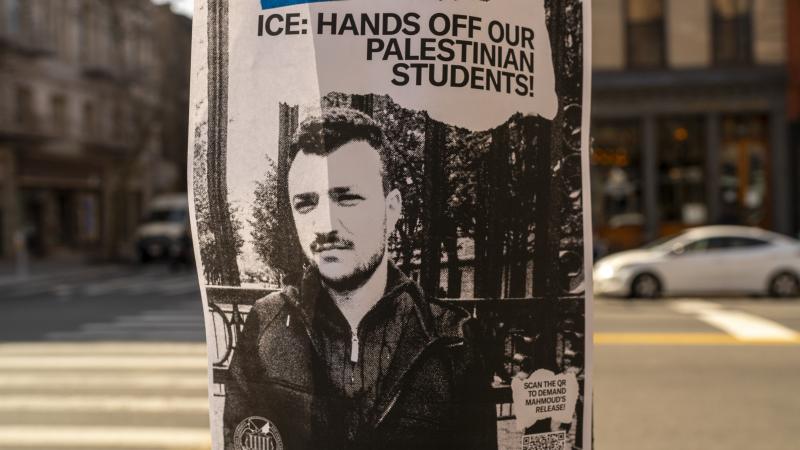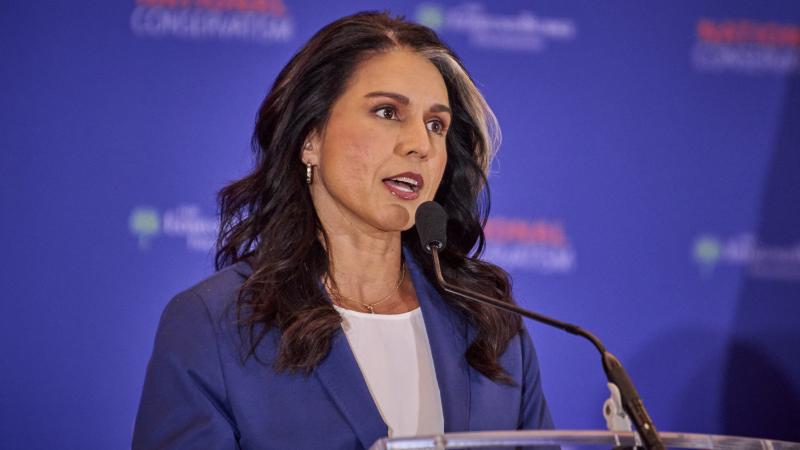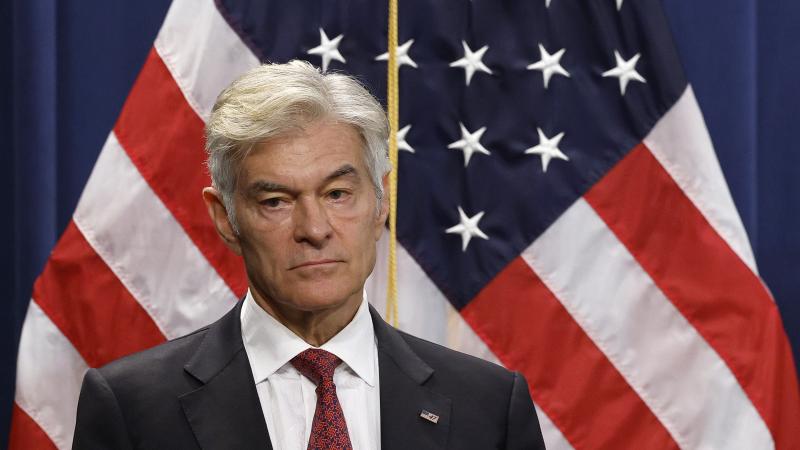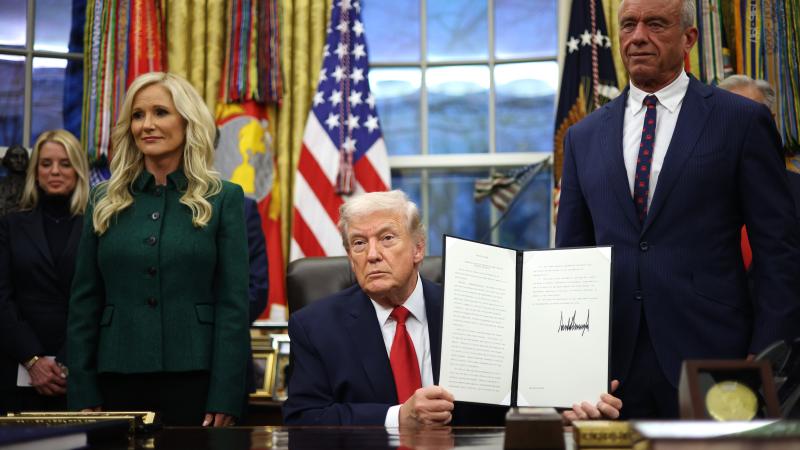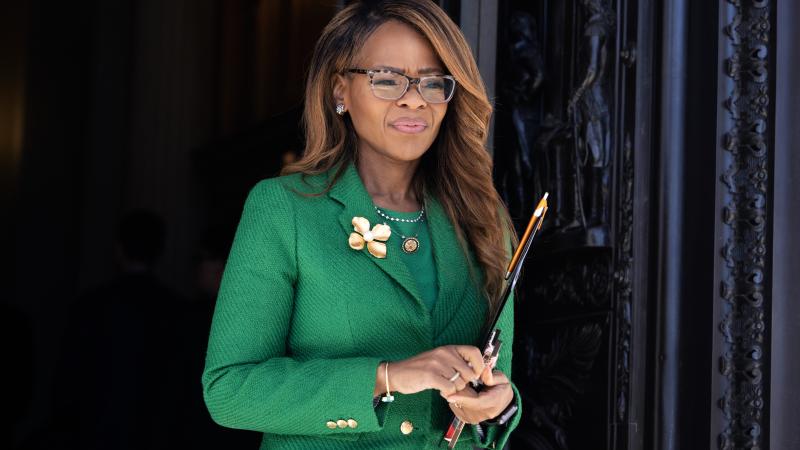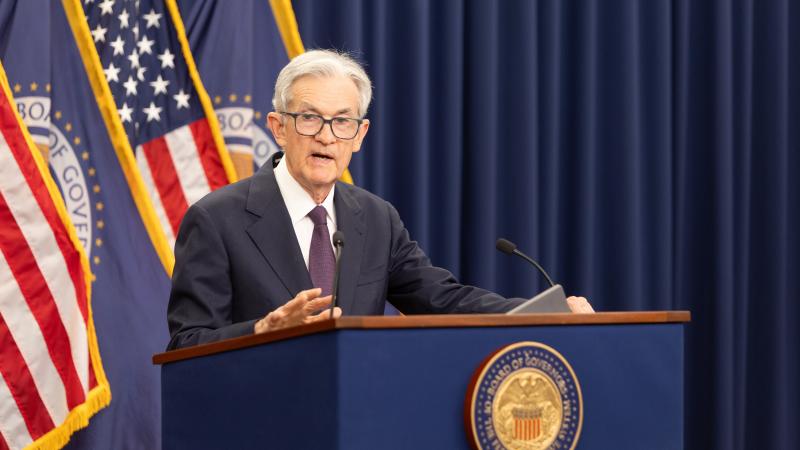'Let my people go': SCOTUS spurns Zionists forced into anti-Israel union representation
New York lawmakers and Congress should change laws to protect workers' conscience rights against heavily politicized public sector unions after SCOTUS passes on CUNY case, plaintiff says.
New York, Connecticut and Vermont public employees who are repulsed by the "expressive" advocacy of their unions do not enjoy freedom of association under a March 2024 ruling by the 2nd U.S. Circuit Court of Appeals.
That's not going to change anytime soon.
The Supreme Court denied a petition by self-proclaimed Zionist professors at the City University of New York to hear their case against the anti-Israel union with the exclusive right to represent them, refusing to "clarify" that a narrow 41-year-old ruling – rejecting a "right to participate in nonpublic meetings with public officials" — does not insulate the arrangement.
They are hoping the high court's inaction spurs state lawmakers to revise the "Taylor Law" on public sector collective bargaining, as they did in 2018 in anticipation of the Supreme Court letting non-union members opt out of paying so-called agency fees.
The professors also want Congress to pass the Union Members Right to Know Act, introduced last fall by Sen. Bill Cassidy, R-La., which would require unions to tell workers their rights at odds with the unions' interests and prohibit any contribution from being used for "nonrepresentational activities" unless authorized on a yearly basis by the employee.
"If Federal legislators really want to address the evil and insanity that is transpiring on our campuses, they must recognize that Marxist and antisemitic faculty unions are behind so much of it" and pass Cassidy's bill, plaintiff Jeff Lax wrote in The Algemeiner on Wednesday.
While his clients now have "no option to escape the union’s unwanted representation, apart from quitting their jobs," Fairness Center President Nathan McGrath said their efforts won back improperly withheld dues, limited the breadth of the Taylor Law's interpretation and "repeatedly expos[ed] in the media" alleged anti-Israel and antisemitic union behavior.
Several third parties filed friend-of-the-court briefs in favor of the professors, from right-to-work and conservative advocacy groups to Jewish, pro-Israel and religious liberty groups, arguing the lower courts have distorted 1984's Minnesota v. Knight beyond all recognition.
That lineup didn't convince any justice to dissent from denial of the petition, with Goldstein v. Professional Staff Congress/CUNY simply included in a list of denied petitions Monday.
It appears all the more surprising given the keen interest of the high court in the past several years in freedom from coerced speech and association, especially when religion is involved.
California permanently ended its abortion advertising mandate on pro-life pregnancy centers, which are often explicitly religious, following a 2018 ruling that it was likely unconstitutional, which set off cascading effects in the lower courts against regulation of pro-life speech.
Just this month the 2nd Circuit revived two lawsuits involving freedom of association, the first against New York's ban on pro-life organizations hiring only pro-lifers. It even admitted it goofed in the second, against Pfizer's racial eligibility test for a fellowship, by forcing a membership group to unmask its members to continue the suit.
Several appeals and trial courts have ruled against public colleges forcing Christian clubs to accept leaders at odds with their beliefs, with the 8th Circuit twice denying legal immunity to University of Iowa officials for their treatment of Christian clubs in 2021.
PSC "imposes its tainted services on us" despite the union "push[ing] us out of its membership by spouting hateful attacks against our religion and heritage," Lax, who teaches law and chairs the business department at CUNY, wrote in The Algemeiner. "We’ve been driven out, then denied a vote on an agreement that affects our careers and our safety."
The new contract is silent on "the massive antisemitism problem at CUNY" documented by the U.S. Department of Education, Equal Employment Opportunity Commission and antisemitism report commissioned by Democratic Gov. Kathy Hochul, he said.
Lax compared PSC leaders to "tyrannical Pharaoh" who enslaved the ancient Israelites "until someone stood up," comparing himself to Moses: "Let my people go."
The 2nd Circuit kept him, Avraham Goldstein, Michael Goldstein, Frimette Kass-Shraibman, Mitchell Langbert and Maria Pagano chained to PSC because it "styles itself as a union and its mandatory representation stems from a labor statute," the plaintiffs' July petition says.
All Zionists and all but one Jewish, they oppose how the union negotiates their employment terms and conditions and most of all "detest" PSC's support for the boycott, divestment and sanctions movement, which they contend "vilifes Zionism, disparages the national identity of Jews, and seeks to destroy Israel as a sovereign state."
PSC's 2021 BDS resolution caused them to be "ostracized on campus based on their identities, religious beliefs, and support for Israel," and its press release spoke in their names against their will to condemn Columbia University's arrests of anti-Israel protesters. (Columbia's anti-Israel activism spurred multiple lawsuits and likely its president's sudden resignation.)
The petition invokes the 2018 Janus ruling by SCOTUS against mandatory agency fees, which said exclusive representation "substantially restricts the rights of individual employees” and their associational freedoms, which "would not be tolerated in other contexts."
Referring to 1984's Knight ruling, they said "it defies credulity to believe this Court would hold such compelled expressive association to not even be worthy of First Amendment scrutiny, but mere rational basis review" under which nearly any government policy is upheld, they said.
PSC's response brief barely acknowledges the plaintiffs' core objection, with any form of "Jew" only appearing once, to describe five of the six faculty, and the only mention of Israel on page 36 of a 40-page filing. It claims Knight makes no exceptions for exclusive representation.
The BDS resolution specifically condemned "anti-Semitism" and "PSC never represented" it "expressed the views of all faculty," with all four principal officers voting against it and the union publishing criticism from faculty, the brief said. "Petitioners are free to express their own messages about PSC, about Israel, and about all other issues – and they have."
The Zionist Organization of America's SCOTUS brief documented "campus antisemitism surges" at universities following the Oct. 7, 2023, Hamas terrorist attacks on Israeli civilians, faculty who have "openly supported Hamas and its massacre of Jews," protest encampments that threatened Jews and unions that fueled antisemitism, including PSC.
"The First Amendment prohibits the forced association between religious minorities and a union that espouses views in conflict with their faith," the Jewish Coalition for Religious Liberty's brief said. Seventy-five years before Janus, SCOTUS rejected "even strong government interests" as a justification for "compelling association and speech" via the Pledge of Allegiance.
The 2nd Circuit is an outlier, with "most circuits" saying precedent "prevents them from squaring Janus and Knight," the group said. Without intervention, "public employees that practice their faith will continue to be forced to choose between their faith and their job."
A brief led by Advancing American Freedom and signed by America First Policy Institute, Orthodox Jewish Chamber of Commerce and Students for Life of America, among other conservative groups, argues the government cannot subordinate the professors' beliefs to union speech "totally unrelated" to its special treatment under New York law.
"Even if the compelled exclusive representation at issue in this case does serve a compelling state interest" applied to Zionist faculty, "it is not narrowly tailored to achieve those purposes" and could easily prohibit unions from advocacy "not directly related" to the employer-employee relationship, the brief states.
The Facts Inside Our Reporter's Notebook
Videos
Links
- March 2024 ruling
- their case against the anti-Israel union
- "Taylor Law
- they did in 2018 in anticipation of the Supreme Court
- Union Members Right to Know Act
- The Algemeiner
- Several third parties filed friend-of-the-court briefs
- 1984's Minnesota v. Knight
- list of denied petitions Monday
- cascading effects in the lower courts
- regulation of pro-life speech
- New York's ban on pro-life organizations only hiring pro-lifers
- Pfizer's racial eligibility test for a fellowship
- 8th Circuit twice denying legal immunity to University of Iowa officials
- antisemitism report
- plaintiffs' July petition
- PSC's 2021 BDS resolution
- press release
- Columbia's anti-Israel activism
- president's sudden resignation
- nearly any government policy is upheld
- PSC's response brief
- Zionist Organization of America's SCOTUS brief
- Jewish Coalition for Religious Liberty's brief
- A brief led by Advancing American Freedom
